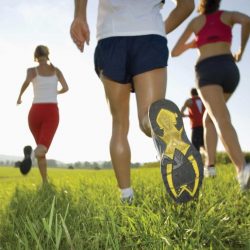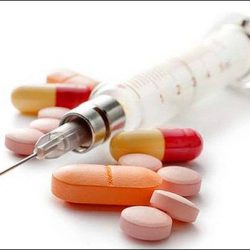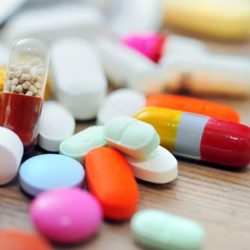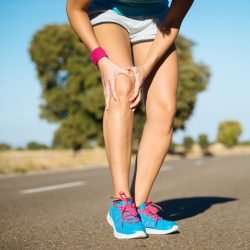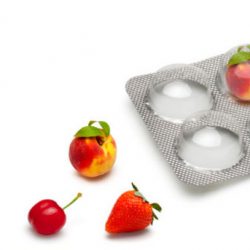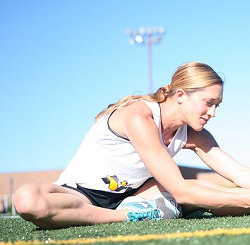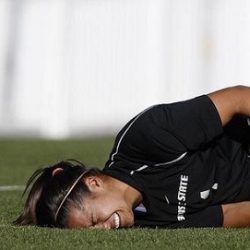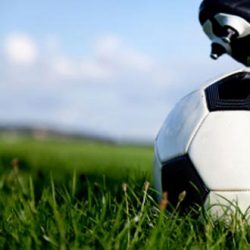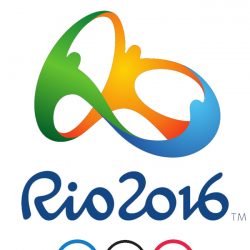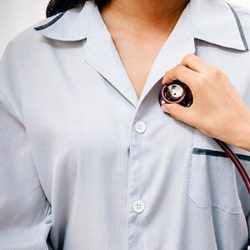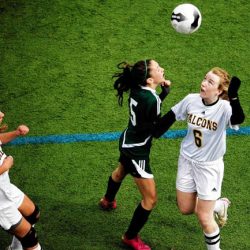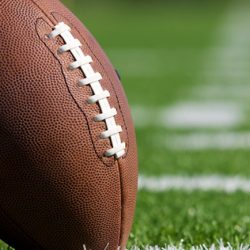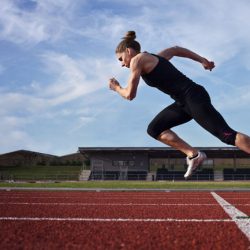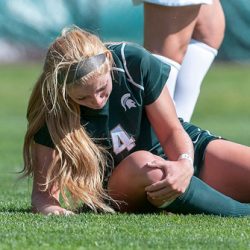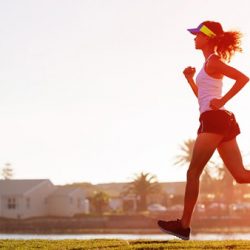Tennis star Serena Williams penned a powerful letter addressed to 'all incredible women who strive for excellence', talking about the barriers that still hold women athletes back. Published in the Porter Magazine’s Incredible Women of 2016 issue, Serena tackled sexism in sport in the letter. "When I was growing up, I had a dream. I’m sure you did, too. My dream wasn’t like … [Read more...]
Sports & Medicine

Does physical activity lower the risk of bacterial infections?
The risk of bacterial infections is known to be affected by physical activity, but little information is available regarding the more serious infections caused by bacteria. In this study, the investigators examined the relationship between leisure-time physical activity and suspected bacterial infections during a one-year follow up. Suspected bacterial infections were … [Read more...]
New Device To Improve Taste Of Foods Low In Fat, Sugar & Salt
Scientists may be closing in on a way to let consumers savor the sweet taste of cake, cookies and other culinary delights without the sugar rush. In preliminary tests using a new device developed in-house that allows them to screen for odor compounds in real foods, they have isolated several natural aromatic molecules that could be used to trick our brains into believing that … [Read more...]
Time Of The Day Influences Our Susceptibility To Infection
We are more susceptible to infection at certain times of the day as our body clock affects the ability of viruses to replicate and spread between cells, suggests new research from the University of Cambridge. The findings, published today in the Proceedings of the National Academy of Sciences, may help explain why shift workers, whose body clocks are routinely disrupted, are … [Read more...]
New Drugs Hope To Fight Neglected Tropical Diseases
Scientists say they are a step closer to providing effective treatments for three "neglected" diseases after making a chemical which can kill the parasites that cause the illnesses. Chagas disease, leishmaniasis and human African trypanosomiasis (also known as sleeping sickness) affect 20 million people worldwide and lead to more than 50,000 deaths annually. The … [Read more...]
An Hour Of Brisk Walking Can Counter Health Risks From 8 Hours Of Sitting
The health risks associated with sitting for eight or more hours a day -- whether at work, home or commuting -- can be eliminated with an hour or more of physical activity a day, according to a study from an international team of researchers. Ever since a study back in 1953 discovered that London bus drivers were at greater risk of heart disease compared to bus … [Read more...]
Regenerative Medicine Helpful in Muscle Injuries
Results of a study conducted by researchers at the University of Pittsburgh School of Medicine and the McGowan Institute for Regenerative Medicine showed significant improvement in strength and range of motion, as well as evidence for skeletal muscle regeneration, in 13 patients who were surgically implanted with bioscaffolds derived from pig tissue to treat muscle injuries. … [Read more...]
Antioxidant Supplements: Boon or Bane?
The lay press and thousands of nutritional products warn of oxygen radicals or oxidative stress and suggest taking so-called antioxidants to prevent or cure disease. Professor Pietro Ghezzi at the Brighton and Sussex Medical School and Professor Harald Schmidt at the University of Maastricht have analyzed the evidence behind this. The result is a clear warning: do not take … [Read more...]
Athletes May Have Some Brain Changes 6 Months After A Concussion
New research finds white matter changes in the brains of athletes six months after a concussion. The study will be presented at the Sports Concussion Conference in Chicago, July 8-10, hosted by the American Academy of Neurology, the world's leading authority on the diagnosis and management of sports-related concussion. The conference brings together leading experts in the field … [Read more...]
Young Females At Greater Risk for ACL Re-tear
Graft size, sex and age have a significant effect on the odds of an ACL re-tear post reconstruction with a hamstring graft, say researchers presenting their work at the American Orthopaedic Society of Sports Medicine's Annual Meeting in Colorado Springs, CO. "Our research noted that female patients under the age of 25 with a graft size of less than 8 mm have an … [Read more...]
Rio Athletes may Benefit from ‘Leaky Gut’ Therapy
'Leaky gut' is a condition where the thin mucosal barrier of the gut, which plays a role in absorbing nutrients and preventing large molecules and germs from the gut entering the blood stream, becomes less effective. It is a particular problem for those taking part in heavy exercise or who are active in hot conditions. It can lead to 'heat stroke' (especially in military … [Read more...]
Too much stress: English footballers impaired by mental fatigue
Professional footballers and their coaches often complain about the mental fatigue induced by the stress of frequent matches. Now research from the University of Kent has demonstrated for the first time that mental fatigue can have a negative impact on football performance by reducing running, passing, and shooting ability. Professor Samuele Marcora of Kent's School … [Read more...]
Exercise can help adults cope with ADHD
Exercise, even a small amount, can help alleviate symptoms of ADHD in adults, according to a new study by University of Georgia researchers. The study, released this month in the journal Medicine and Science in Sports and Exercise, found a single bout of exercise has psychological benefits for adults with these elevated ADHD symptoms. About 6 percent of American … [Read more...]
As Olympics near, study finds low levels of physical activity in Brazil
As Brazilians make final preparations to host the world's premier showcase of athleticism, the Olympics, a new paper in the Journal of the American Heart Association reports that many citizens of the host country are not taking enough advantage of the health benefits of exercise. The analysis of data from the Brazilian Longitudinal Study of Adult Health (ELSA-Brasil) finds … [Read more...]
Chronic sleep restriction negatively affects athletic performance
A new study found that chronic sleep restriction negatively affects athletic performance. Results show that following sleep restriction, energy expenditure during submaximal exercise decreased 3.9 percent; maximal aerobic power decreased 2.9 percent and time to exhaustion decreased by 10.7 percent (37 seconds). Submaximal heart rate decreased after sleep restriction, as well … [Read more...]
Sleep disorders common in athletes: University of Eastern Finland Study
Professional athletes suffer from sleep disorders more frequently than generally thought, however, systematic examination, counselling and individual treatment planning can improve the quality of their sleep. Published in the Journal of Sports Sciences, a new Finnish study clearly shows for the first time that systematic measures can improve the sleep of professional … [Read more...]
From Heart Surgery to Marathons!
If running a marathon was easy, everyone would do it. The 26.2 mile race is tough for anyone … especially for Paul Sykes. He ran one just weeks after heart surgery. He was born with a bad heart valve and Paul Sykes knew someday he’d have to have it replaced. Sykes told Ivanhoe, “I was getting a lot of pain, chest pain.” Sykes loves to run. “One day I went home after a … [Read more...]
Eating disorders and depression in athletes: A Study
Sport is a proven contributor to high self-esteem, confidence, positive outlook and good health. It would be reasonable to assume then that athletes have higher than average protection from depression and dysfunctional eating? On the contrary, athletes are considered three times more likely to develop an eating disorder and there is strong empirical evidence linking eating … [Read more...]
Eating dark chocolate help boost athletic performance: Kingston University Study
Dark chocolate has already been hailed for its positive effects on cardiovascular health -- and now a study undertaken at London's Kingston University has found the tasty treat could help give sports enthusiasts an extra edge in their fitness training. A team led by postgraduate research student Rishikesh Kankesh Patel discovered that dark chocolate provides similar benefits … [Read more...]
New guidance on preventing sudden cardiac death in athletes published
The Journal of the American College of Cardiology today published a consensus statement that establishes guidance for conducting pre-participation screenings of college athletes and encourages emergency action plans for quickly responding to sudden cardiac arrest. The statement was developed by a 29-person task force convened by the NCAA in September 2014. Task force members … [Read more...]
Girls & Concussions
If you take football out of the picture, girls suffer more concussions among high school and college athletes than boys. But the head injury doesn’t discriminate. One concussion is unlikely to do permanent damage, but multiple concussions can be devastating. Anxious to impress college softball coaches, 17-year-old Hali Jester came back too soon from a concussion and suffered … [Read more...]
Retired NFL players may be at risk for hearing loss and tinnitus: Loyola University Study
Retired NFL players may be at risk for permanent hearing loss and tinnitus, according to Loyola University Medical Center ear surgeon John Leonetti, MD. Many NFL players suffer one or more concussions during their careers. And Leonetti notes that such blunt head trauma has been associated with hearing loss and tinnitus (chronic ringing or buzzing in the ears). Leonetti said … [Read more...]
More than 40 percent of retired NFLplayers have brain injury: A Study
More than 40 percent of retired National Football League (NFL) players in a recent study had signs of traumatic brain injury based on sensitive MRI scans called diffusion tensor imaging, according to a study released today that will be presented at the American Academy of Neurology’s 68th Annual Meeting in Vancouver, Canada, April 15 to 21, 2016. “This is one of the largest … [Read more...]
Skateboarding related injuries are about 176 a day in US: A Study
Skateboarding is a popular recreational sport and participation has increased the last several decades, faster than any other sport or recreation activity between 1998 and 2007. With growing participation, has come an increasing rate of injuries from skateboarding. In a study published online by Injury Epidemiology, researchers from the Center for Injury Research and Policy … [Read more...]
Female athlete triad syndrome a growing concern: A Study
When an adolescent female patient comes to Nationwide Children's Hospital's Sports Medicine clinic, not only are these young women treated for their sports-related injury, but their sports medicine physician will also ask if they've missed any periods, because of a growing concern among female athletes. Anastasia Fischer, MD, a physician in Sports Medicine at Nationwide … [Read more...]
Long-distance training saddle young cyclists with fragile bones: Wake Forest University Study
Young cyclists training to join the Tour de France could be causing irreversible damage to their bones. The combination of cycling extreme distances and restricting caloric intake to reduce weight can decrease bone density to levels that put young athletes at greater risk for serious fractures and, in the long term, developing osteoporosis. It is unclear whether these … [Read more...]
Specialized high school athletes more likely to have knee and hip injuries: University of Wisconsin Study
There is a sense among those who pay attention to youth and high school athletics that more and more young athletes today are focusing on excelling at a single sport instead of playing a variety. Perhaps surprisingly, though, little research has been conducted on the prevalence of sports specialization in high school athletes -- and what that might mean for these … [Read more...]
Young baseball players could benefit from preseason arm injury prevention programs: A Study
Preseason prevention programs are beneficial to young baseball pitchers, according to research presented today at the American Orthopaedic Society for Sports Medicine's (AOSSM) Specialty Day. The study, the first to analyze a well-monitored preseason training program, showed numerous arm flexibility and strength improvements in participating athletes that could ultimately … [Read more...]
Parental pressure pushes young athletes to doping: University of Kent Study
Pressure to be perfect from parents makes young male athletes positive about doping, research from the University of Kent shows. Research from the University's School of Sport and Exercise Sciences has revealed that parental pressure makes junior athletes more likely to use banned substances to enhance sporting performance. Because of the risks identified in the findings, … [Read more...]
Taking vitamin D2 has no benefits for athletes: Appalachian State University Study
Power athletes and others looking for an edge to improve their performance should avoid taking vitamin D2, a new study suggests. Research conducted at Appalachian State University's Human Performance Lab at the N.C. Research Campus in Kannapolis showed that taking vitamin D2 supplements decreased levels of vitamin D3 in the body and resulted in higher muscle damage after … [Read more...]
- « Previous Page
- 1
- 2
- 3
- 4
- …
- 13
- Next Page »

